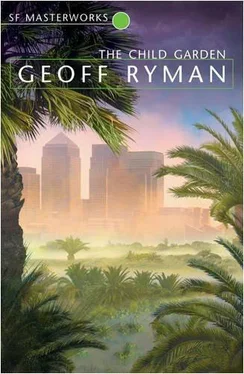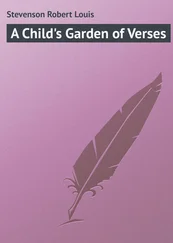Rolfa ate in an agony of embarrassment. Quiet, folded in on herself, a tight false smile and staring, darting eyes. She licked her plates to get the gravy hoping no one would notice. People stared. They chuckled in disbelief when she came back from the buffet with a third helping of stew or lasagne. The place was steamy, with sunlight pouring through windows. When she wasn’t eating, she had to pant, moisture dripping off her long pink tongue.
‘Does she eat the plates as well?’ Milena once heard someone behind them murmur.
Milena didn’t care. She was in love. She kept trying to smell Rolfa. The scent of Rolfa was pungent and a bit doggy, full of lanolin. Milena would haul it into her nostrils, savouring it along with the aromas of the food. She would ask to sample Rolfa’s fish pie.
‘Oooh, fish pie! Oh, please,’ she would say. She hated fish pie. What she wanted was the taste of Rolfa on the fork.
I can’t believe I’m doing this, she thought, sucking on the cutlery as if it were a lollipop.
She found herself wondering if she could lick Rolfa’s plate without anyone noticing. She gave herself a very bad fright indeed when she stole from the cafe a spoon that Rolfa had used. She reached for it and something drew tight and stopped her, but the pull of Rolfa was stronger, and she touched it. It was still warm from Rolfa’s hand. Something taut like wire seemed to snap with a twang, and Milena picked the spoon up and slipped it into her pocket.
This is ridiculous, she thought. What am I going to do with it? Keep it unwashed by my kitchen sink? That was exactly what she did with it.
Milena would deliberately walk into Rolfa to bury her face in her fur. She kept crowding into Rolfa, to feel the inhuman heat of her, to feel the tickle of the fur. Rolfa was highly charged with static. Milena would sometimes get a jolt of electricity from her. When she came near the little hairs on Milena’s arm would stand up.
Rolfa began to get a bit annoyed with being walked into. ‘We’ll have to get you a bigger pavement,’ she said, mystified.
Once Milena elbowed Rolfa into a rank of bicycles. Five or six of them fell over like dominoes in a row, and Rolfa’s fur got caught up between a chain and a chain wheel.
‘Oh, I’m sorry,’ said Milena, and knelt to free her. She held the fur and gripped the calf and it was vast, fleshy and warm like someone’s stomach. She fumbled with the chain, which was organically lubricated. Milena’s hands, her nose and most of Rolfa’s lower leg were smeared with thick moss-green.
‘May I enquire, Little One? What are you doing?’
I’m hugging you, thought Milena. Do something.
‘Little… Little One. I’ll do it.’ Rolfa eased her back, gently.
‘Sorry. Sorry,’ said Milena and hopped backwards. Oh God, how embarrassing. What was she doing? Oh Rolfa, Rolfa, please notice, please say something, please do something. I can’t say it!
Rolfa began to take her to the opera. They went to the first night of Falstaff. The Vampires showed up in en masse as the original 1890 London audience. The men wore tails and the women wore bustles. Someone played George Bernard Shaw.
Rolfa seemed delighted. All through the opera she rocked with laughter, throwing herself back and forth in her seat. The whole row rolled with her weight. Milena was entranced by the staging and the lights. She loved the rumble of the great old stage as it began to rotate, and an inn was replaced with a house by the river. She was less moved by the music.
As they stood up at the end, Milena asked. ‘Why weren’t there any arias?’
‘Tuh!’ shuddered Rolfa. ‘Every line in Verdi is an aria!’ Milena thought that was hyperbole, simply a way to emphasise how much Rolfa had enjoyed the performance. It did not occur to her that it might be the literal truth.
The Vampires crowded around Cilia. She had played one of the Merry Wives and she had been delicious. She had made the scheming against old John Falstaff seem light and happy. She had worn the old costumes and had made the old stage moves. ‘Cilia! Cilia!’ said a young man, hopping up and down, forgetting his Vampire role. ‘You were as good as the original.’
‘You were better,’ whispered Milena, as she kissed Cilia on the cheek. Love seemed to spill over everywhere.
Milena and Rolfa walked home along the river, and the alcohol lights were the colour of a low moon in a smoky sky.
‘Oh dear,’ sighed Rolfa. ‘They really shouldn’t try to perform music. No one should. They only ever end up performing part of it. Never the whole.’
‘But people want to hear it, don’t they?’
‘More like the musicians want to play it,’ said Rolfa. ‘They haven’t learned that they can’t. It’s an impossibility. Like trying to tell the whole truth.’
They reached the steps of the Shell. ‘Goodnight,’ said Rolfa. She began to walk backwards. The river glittered behind her, and with each step, she whispered, ‘Good night. Good night. Good night.’ Then she put a finger to her lips for silence.
Milena went to bed alone.
The nights were the worst. Milena would be feverish with love, unsettled, as if Rolfa were in the bed next to her, as if the miles that separated them were nothing, as if she could reach out and feel the warmth and the fur. It was like holding a ghost.
Sometimes she would remember the terror.
The viruses! she would think and sit bolt upright. She had forgotten about the viruses!
She would think of her dirty hands that had crammed food into her mouth and had rubbed in her eyes. She would think of the cutlery she had not washed, of how dirty her mouth was, of all the risks, the pointless risks she had taken. She would throw off the counterpane in panic. She would shower, even though the water in the middle of a summer night could be freezing cold. She boiled kettles and scalded her sink. She boiled all her plates and all her melting forks. She put salt in boiling water and let it cool for a moment in the mug, puffing at it. Then she would gargle, feeling the salt wither the inside of her cheeks. She would scrub her hands and suddenly cover her face and weep, from lack of sleep, from being stretched too far.
I will give her up, Milena would think. I won’t see her. This is getting silly. And the next day, they would have lunch again.
They took to having picnics, in the garden by the river. They would sit on the grass, and Rolfa would crunch her way through the cooked legs of animals, a huge and filthy napkin tied around her neck. She would look quite jolly then, making cracking sounds and sucking out bone marrow. The Polar Bears had genetically engineered stomachs. They could digest almost anything. Rolfa ate the bones as well. Then she would drink gallon jars of yogurt and water. She didn’t say much. Milena caught the scent of her breath and realised why: Rolfa was no longer drinking.
The GE was the most fascinating irresolution of opposites. She was huge and coy at the same time. Like the fat girl in the Child Garden whom everyone bullies, Rolfa moved with a fearful, tip-toe precision that meant she invariably knocked something over. She was boisterous and coarse and delicate and refined, usually within the same sentence. She talked about art. She talked about how Elgar changed keys. How he would play a joke, start in one direction, stop and go back again, start and stop again, and suddenly pull the rug out from under you by doing it backwards with the simplicity of a conjurer. ‘He’s the funniest ficken composer who ever lived!’ she exclaimed, and laughed, exposing rotten teeth and a roiling mass of half-chewed food.
Elgar? Funny? Milena examined her viruses. That was not something they told her.
‘Where did you learn all this?’ Milena asked.
Читать дальше












